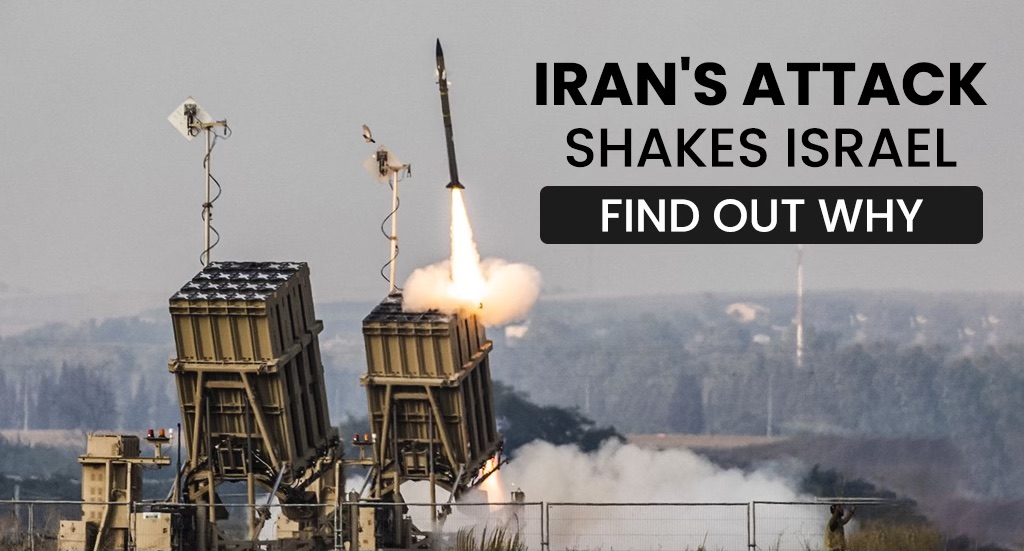Iran launched a significant attack on Israel over the weekend using drones and missiles amid fears of an escalation in the Middle East crisis. The event follows a history of ongoing tensions between the two nations characterised by covert operations. Iran has so far utilised proxies in the Middle East since the start of the Israel-Hamas war in October, while the world waits with bated breath to see if Israel takes any military action. Israel, however, has denied carrying out the consulate strike.
Reasons behind the Escalation
Recently, an airstrike in Syria for which Israel is being widely blamed, destroyed consular offices in the country and resulted in the deaths of several key commanders from Iran’s Islamic Revolutionary Guard Corps, leading to the expected retaliation from Iran. The two countries have been involved in a shadow war for years, attacking each other’s assets without claiming responsibility for the attacks.
Israel’s response and the broader regional implications remain uncertain. The United States is likely to play a pivotal role in addressing the escalating situation.
Iran conducted its first large-scale military attack against Israel, employing over 300 drones, cruise missiles, and ballistic missiles. The Israel Defence Forces’ spokesman, Rear Adm. Daniel Hagari, said that about 99 per cent of these rockets were intercepted successfully.
According to Hagari, three of the rockets landed in Israeli territory, with one causing damage to a military base in the south of the nation. A small girl injured in the incident had surgery and was moved to the paediatric intensive care unit at Soroka Hospital in Israel.
Hagari stated that Israel has obtained assistance from a coalition of nations in intercepting the rockets. President Biden revealed that the US military helped Israel effectively eliminate almost all of the drones and missiles. British Prime Minister Rishi Sunak revealed that the Royal Air Force intercepted several Iranian attack drones, while Jordan’s cabinet said it replied to objects that breached its airspace at night. Hagari also thanked France’s technical help to Israel during the strike.
British Prime Minister Rishi Sunak said the Royal Air Force apprehended “multiple Iranian attack drones,” while Jordan’s cabinet discussed items that flew across its airspace overnight. Furthermore, Hagari stated that France supplied critical technological help during the operation.
The state-run Tasnim News Agency reported that Tehran’s strike on Saturday was organised from numerous areas, including Iran, Lebanon, Iraq, and Yemen. Major General Hossein Salami, commander of Iran’s Islamic Revolutionary Guard Corps, hailed the operation as more successful than anticipated and warned that any Israeli reprisal would result in a greater reaction.
During a United Nations Security Council meeting on Sunday, Iran and Israel traded accusations about the recent escalation. The Iranian envoy described the bombing as a necessary and proportionate reaction to an earlier Israeli strike on an Iranian consulate facility in Syria. In contrast, Israel’s envoy claimed that Iran’s activities had “crossed every red line.”
Throughout the continuing crisis in Syria, Iran has maintained a strong military presence in the region. This increase serves two purposes: it supports Iran’s friend, President Bashar al-Assad, and it strengthens Hezbollah, a major organisation in Lebanon that hates Israel. Iran’s strategy involves establishing a land corridor through Iraq and Syria to enable the transport of weapons. In response to this threat on its northern border, Israel has undertaken airstrikes inside Syria for several years.
According to numerous media sources, these operations target weaponry shipments and other assets thought to be affiliated with Iran and its allies, resulting in occasional losses among Iranian troops.








